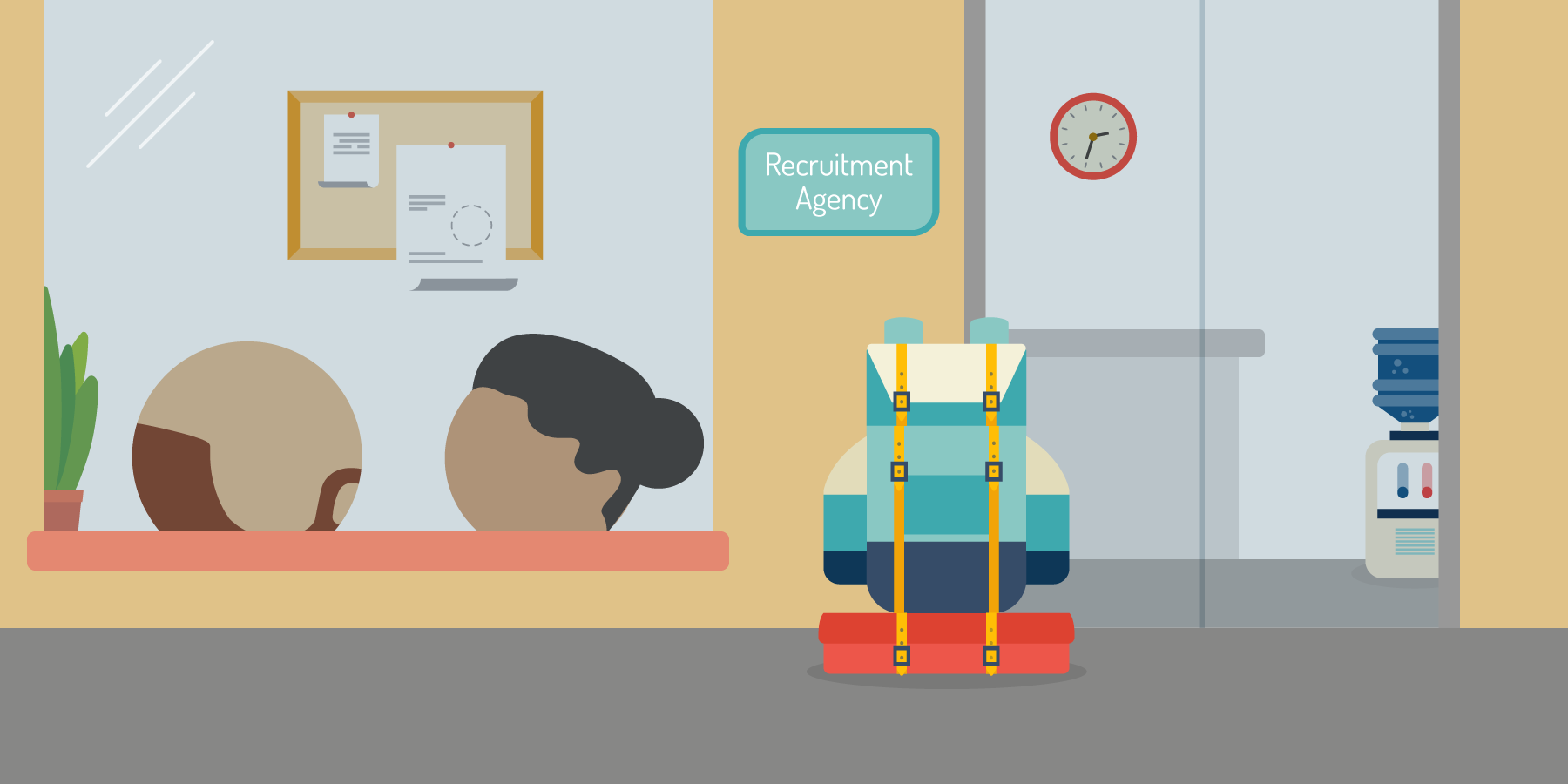Why travellers make great contractors
7 minutes to read

Recently returned home from travelling? Once you’ve finished telling your friends and family about all the crazy adventures you had, interesting people you met and the host of amazing places you visited, it’s probably time to decide what’s next for your career.
If you have a specialist skill, like teaching, IT or nursing, picking up some short-term contracts can be an appealing route back into the workplace. It’s quicker than finding a permanent role and it gives you the freedom to hop on a plane whenever those feet start to get itchy again.
And as it happens, travellers make pretty great contractors.
For a start, you’re definitely cut out for the lifestyle. You know that sense of adventure and curiosity that drove you to fly halfway around the world to visit temples and waterfalls? That’s that same quality that’ll help you throw yourself into new situations and make new friends along the way as a supply teacher or IT consultant.
If you can jump out of a plane at 13,000 feet over New Zealand, can anything really ever phase you again?
But also, think of all the skills you developed on the road. Whether you were working, having once-in-a-lifetime experiences or just doing those everyday things like translating menus, haggling, doing currency conversions and researching flight times, without even knowing it you were improving your chances of picking up contracts on your return home.
In the rest of this article, I’ll highlight some skills that I bet you developed on your travels, and show you how these relate to your ability to succeed as a contractor.
You’re more adaptable
When you’re moving around from workplace to workplace – never quite knowing what the day is going to throw at you – it’s good if you can adapt quickly to different situations. If you’re a traveller, you’re sure to have plenty of examples of doing this.
Before I came to work at Key, I spent six months working in Ghana and most days I had to travel out of the city to the countryside to talk with clients. This meant relying on Tro Tros (public minibuses) to get around the twisting rural roads, and the same journey on two separate days could take 20 minutes or two hours. To get to meetings on time, sometimes I’d hitchhike with a passing car, try to negotiate with the Mate (conductor) to head out on a faster route, or sit in the back of the full-to-the-brim bus, with a few chickens on my lap for company. Each day there was always something different, and I still find myself looking back and laughing at the funny travel situations I found myself in.
You probably have your own similar stories of adapting to new and unfamiliar situations. Times when living in a completely new culture meant coming out of your comfort zone and engaging with problems differently.
Did you have to deal with the knock-on effect of train delays or cancelled flights? Did your hostel lose your booking and you had to find somewhere else to sleep at 11pm? Or did you hear of amazing old ruins you wanted to visit, but that meant changing your whole itinerary for the trip? Adapting to new circumstances – good or bad – is part of life as a traveller and as a contractor.
With a few travelling tales behind you, walking into your first day of a new assignment is no big deal.
You’re a better communicator
As a contractor, you’ll continually be working with new sets of people, and they’re bound to be a varied bunch from many different backgrounds. You’re going to need to try and get along with everyone and forge relationships that help you work more effectively.
Think about turning up on day one of a new assignment and having to gather information. Where’s the photocopier? What’s expected of me today? Who signs my timesheets? There may also be times you’ll need to make yourself heard in a meeting or classroom, interpret a project brief from a new client, negotiate with your recruitment consultant or make small talk in the staff room. These situations are even more challenging when you haven’t had a chance to get to know the people involved (and may never even see them again after today), but being an effective communicator will see you through.
Good thing that travelling has given you plenty of experience connecting with people.
As an example – a friend I met while backpacking who taught English as a foreign language to children and professionals in the evenings. Each student was at a different level, and she regularly had to teach by speaking and using her hands like a game of charades. After she arrived home, her first job was as a supply teacher, which she felt well equipped for after her time abroad. She found she could communicate easily and find a way to relate to everyone she met, including pupils from different Key Stages as well as other teachers and learning support staff.
Even if you haven’t gone as far as teaching in another country, there are plenty of other activities that will have enhanced your ability to communicate better: from negotiating with tuk tuk drivers and asking locals for directions, to leading a bunch of new friends from your hostel on a crazy pub crawl. Think about your time away and how all the various interactions you had improved your people skills.
As a strong communicator, you’re well positioned to secure new contracts and go on to make a success of them.
You’re more organised
One of the most appealing aspects of contracting is the flexibility it gives you. You’re able to spend more time doing other things you love, but you’ll also have to spend a bit more time organising your working life. There’s no such thing as ‘settling into a routine’ as a freelancer. Even before you start your first assignment, you’ll have meetings with recruiters to co-ordinate, application forms to complete, research to be done, bags to be packed and directions to be mapped.
Once you’re on site, you’ll have to hit the ground running and throw yourself into managing an often challenging workload, while remembering lots of new names and trying to make an impact. Oh, and thinking ahead to your next contract too.
Looking back at your experiences whilst travelling, there will be loads of times where you had to be super organised.
The first time I went travelling with friends, I was shocked at how huge a task it seemed. My trip, which sounded so easy beforehand, then had activities like research bus times and book visa appointments attached to it. Although initially horrified that my plan had become so complex, after breaking the trip down into small and manageable chunks I found that it was all quite easy to pull together. Travelling gave me plenty of opportunities to become a more organised person, but it wasn’t until I finished university and started working that I realised how much it had helped.
When you begin life as contractor, you’ll have a lot going on and it can take a bit of getting used to. As a seasoned traveller, you’ll most likely take it in your stride.
What else?
While listed here are only three travelling-related skills that make you a successful contractor, there are certainly many more to consider. If you stop and reflect, you’ll identify other ways in which travelling helped you grow as a person and the skills you now have as a result. A tip to help with this is to dig out any old travel journals or scrapbooks you made with your favourite photos, thoughts and musings.
Be sure to highlight these skills on your CV, LinkedIn profile and in conversations with recruiters and potential clients. It demonstrates the valuable experience you gained during what otherwise could simply be a gap in your working history. It also adds some colour and shows that you’re a rounded person.
Looking at your travelling experiences with a little bit of wonderment may help inspire you, and you never quite know how useful they will turn out to be in the future. Think of Steve Jobs. After dropping out of university, he stumbled upon a calligraphy class. It stayed with him through the creation of the Macintosh computer and influences the company’s design philosophy to this day.
Best of luck with your contracting career.




